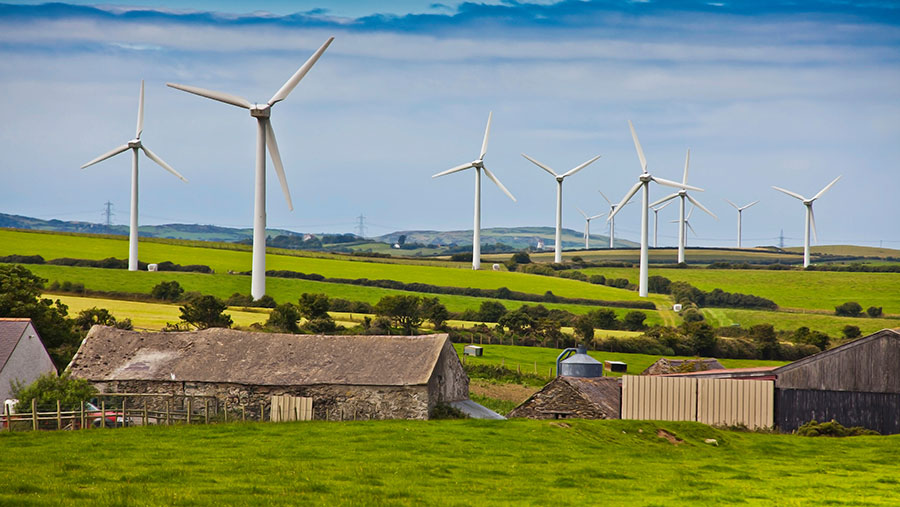Invest in farmers to meet 2030 renewables target, says union
 © Eye Imagery/Adobe-Stock
© Eye Imagery/Adobe-Stock A Welsh farming union is demanding a national government policy that incentivises farmers to invest in renewable energy production.
Farmers’ Union of Wales president Glyn Roberts has called for a “renewable energy revolution”, insisting that governments must step up efforts that restore growth in low-carbon energy production on Welsh farms.
Mr Roberts was speaking at the Royal Welsh Showground, near Builth Wells, Powys, on Sunday 17 July, where he will this week set out a five-point plan for bolstering food and energy security.
See also: Top tips for developing renewable energy schemes
He wants Feed-in Tariffs (Fits) restored as a financial incentive for farmers to invest in renewable energy and for the removal of barriers that prevent them tapping into this sector, including “disproportionate” regulations that block developments.
Fits, which played a central role in more than doubling renewable energy production in Wales from 2014 to 2017 by incentivising farmers to invest, were scrapped in 2019, while the Welsh government’s business rates relief scheme for privately owned hydropower projects ended in 2021.
Mr Roberts said it was a national priority for the Welsh government to find a way to regain the momentum needed to reach the target it had set for meeting 70% of Wales’ electricity demand from renewable electricity sources by 2030.
“Vast amounts of renewable energy are produced on Welsh farmland, but we have only tapped into a fraction of what is possible,” he said.
‘Reset trade policy’
The union’s five-point plan also urges the UK government to reset international trade policy by ditching “weak, damaging and valueless” trade deals.
Mr Roberts wants the UK to restore “good relations” with the European Union, accusing politicians of undermining food security.
He expressed concern for what he described as “liberal” trade deals with Australia and New Zealand, suggesting that the UK government’s own figures demonstrate that these are of “negligible” value to the Welsh economy and will undermine food security.
“Our nearest neighbouring countries, the majority of which are EU members, are members of the most stable trade partnership in the world and have acted rapidly to secure European food security in the face of threats, the likes of which have not been seen since the Second World War,” said Mr Roberts.
“We must restore good relations with the nations and peoples who are our greatest allies when it comes to food and energy security, and represent the most affluent market in the world and one which is on our doorstep.”